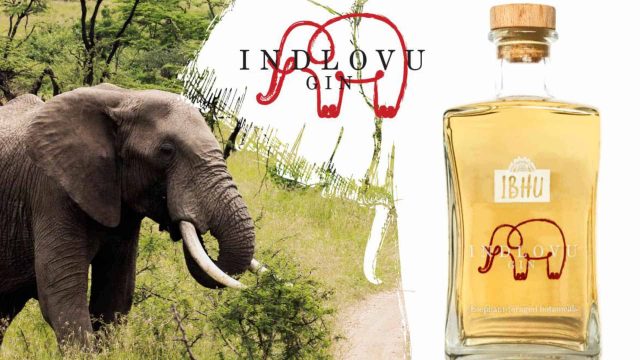
Elephants graze in a variety of delicacies. While grazing they tend to gather a bundle of grass with roots and soil combined. During dry seasons, they still consume grass, but also eat more tree bark, leaves and branches.
The idea of making Indlovu, gin from elephant poop struck Les Ansley and Professor Paula Ansley, a South African couple while on safari in Kenya.
The couple was particularly interested in the grazing habits of the elephants, identifying that the different kind of flavours the animals fed on were found in botanical gin. This gave birth to the idea of processing gin from the animal’s poop.
” The original idea for elephant dung gin came from marrying the love of Africa and its wildlife with the love of gin. We are both scientists—and therefore inclined towards novel ideas and problem solving—so when Paula had the idea we really wanted to see whether it would actually be possible. The more we explored the concept the more it opened up and the more excited we became,” the couple noted.
To prepare Indlovu, the collected dung is dried, crumbled and then immersed in a sterilising fluid that kills 99.9% of bacteria, fungi, spores, viruses.
The sterilised dung is thoroughly rinsed, dried and stored in breathable sacks until use away from the fresh dung to prevent any cross-contamination. An alcohol solution between 40-70% is very effective in killing bacteria and is directly infused to the dung during one of the flavouring runs, as an additional step in the cleansing process.
At the bottling step, the gin is passed through a micro-filter and finally, a sample from each batch of gin is sent for laboratory analysis to ensure that it meets the stringent standards of consumption.
Apart from making Indlovu, the dung is used as traditional medicine and often brewed as a tea. Elephant poop is also used as a mosquito repellent.
A bottle of the gin fetches 659 South African rands and can be purchased from Yuppie Chef online or local store in South Arica.
15% of the revenues generated from the sale of the gin is donated to the Africa Foundation to support their work in wildlife conservation



